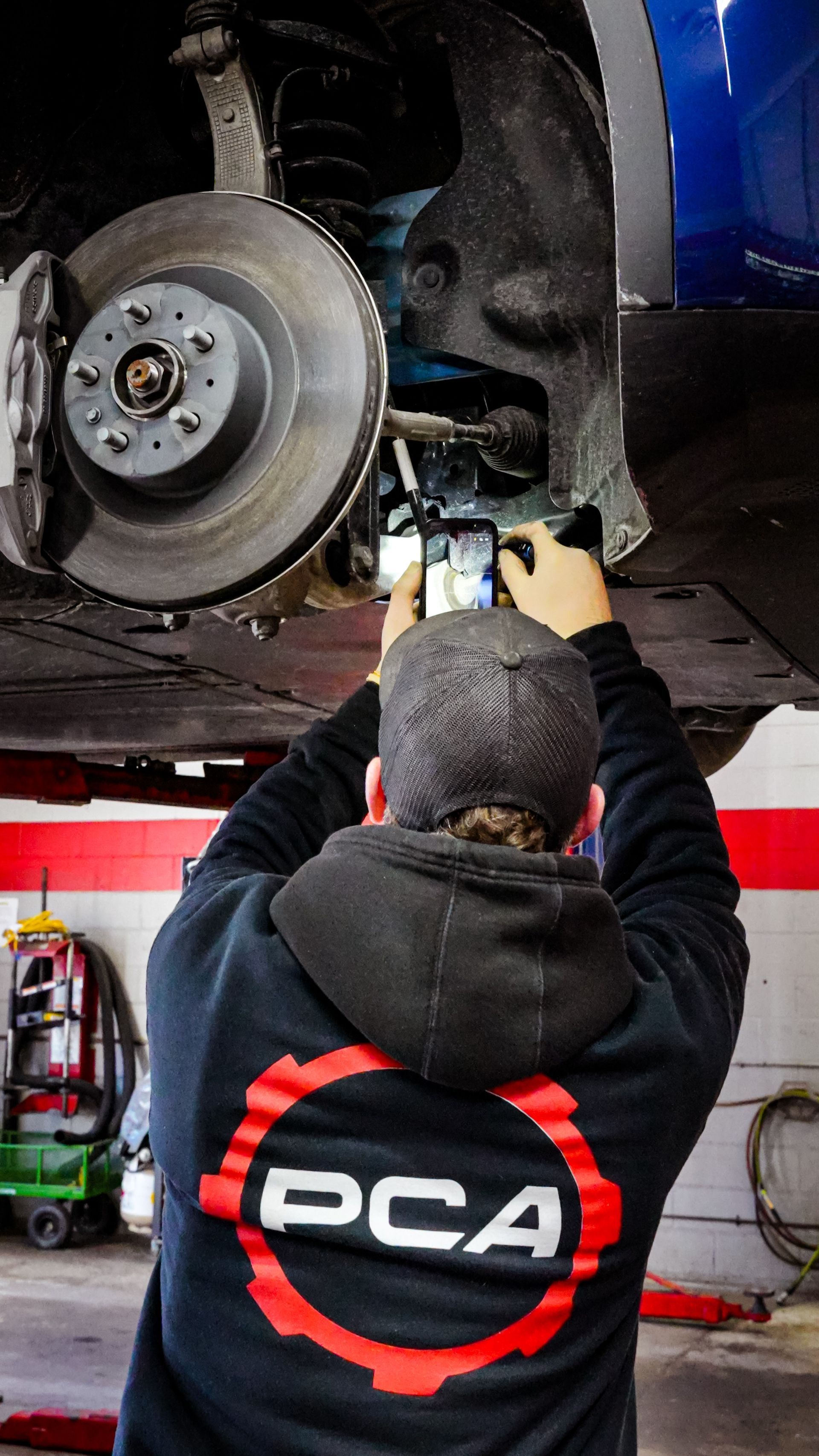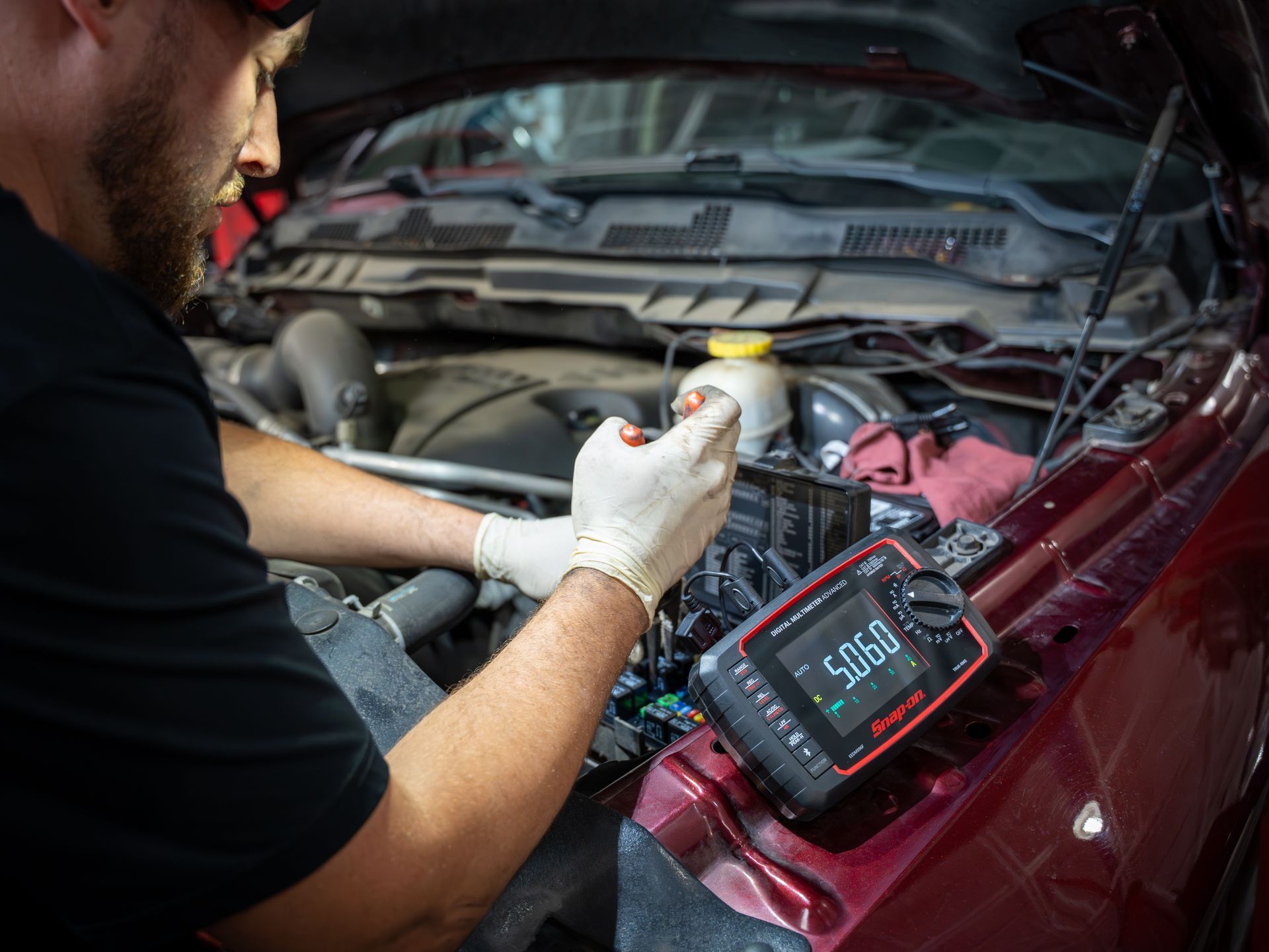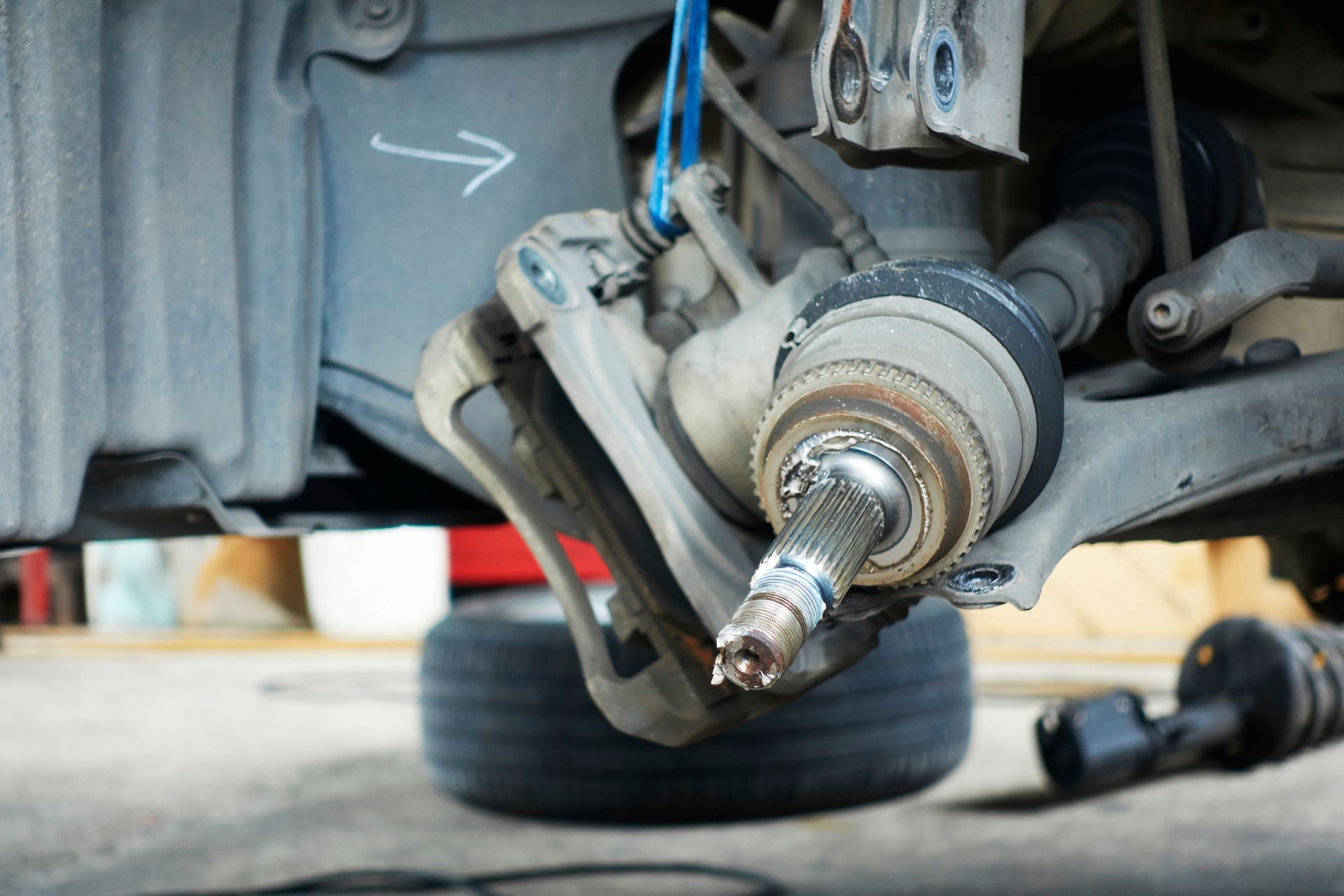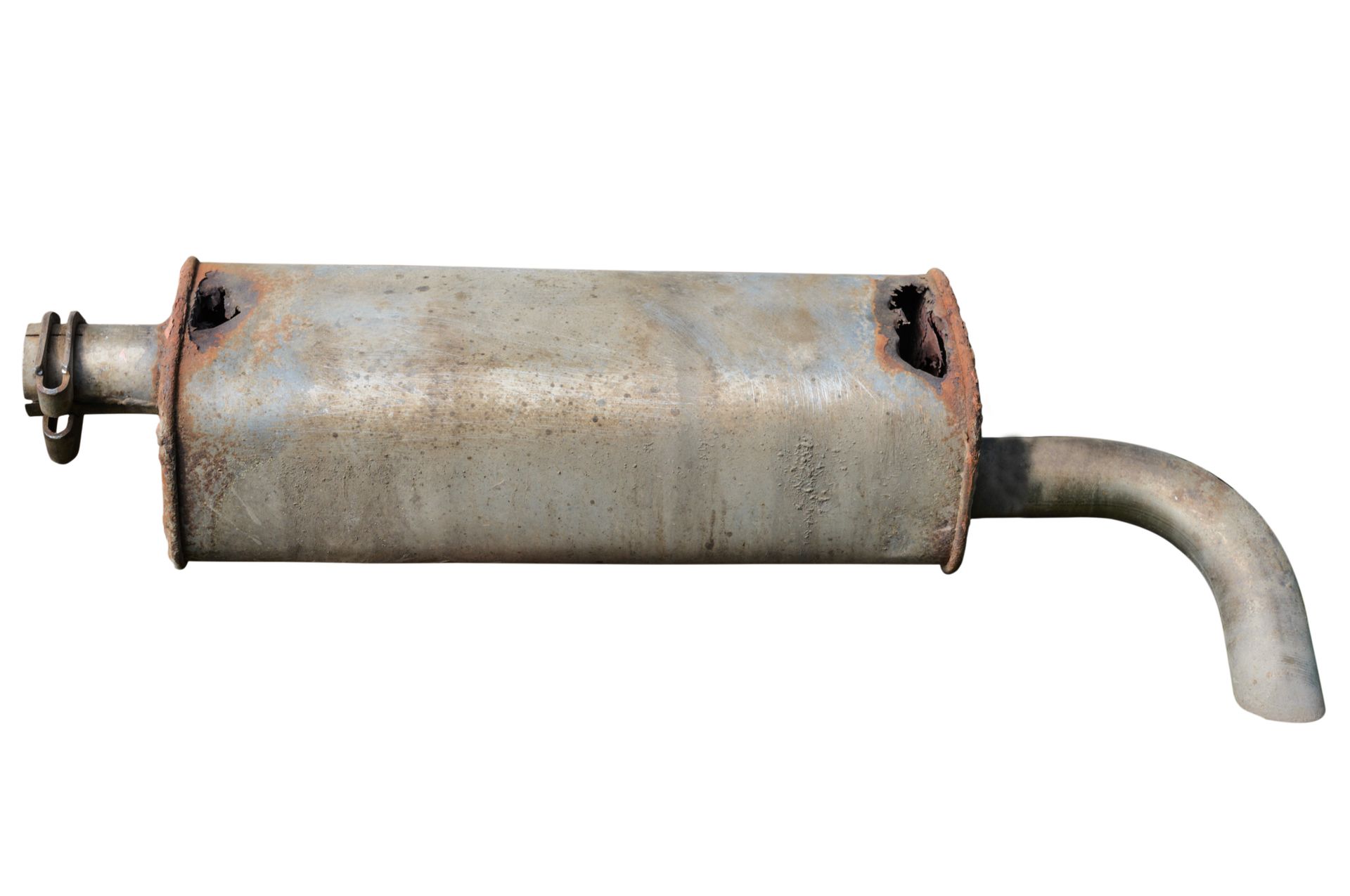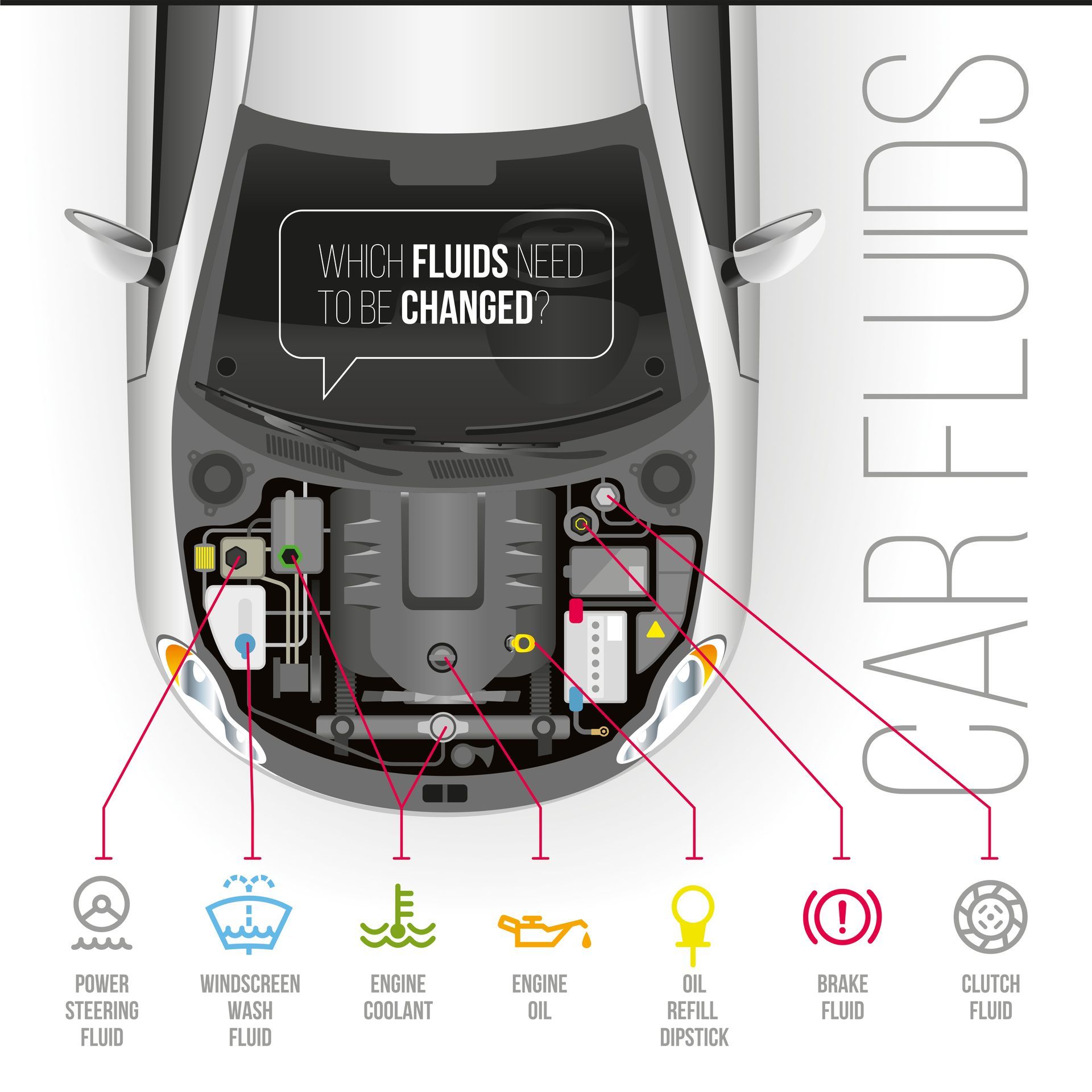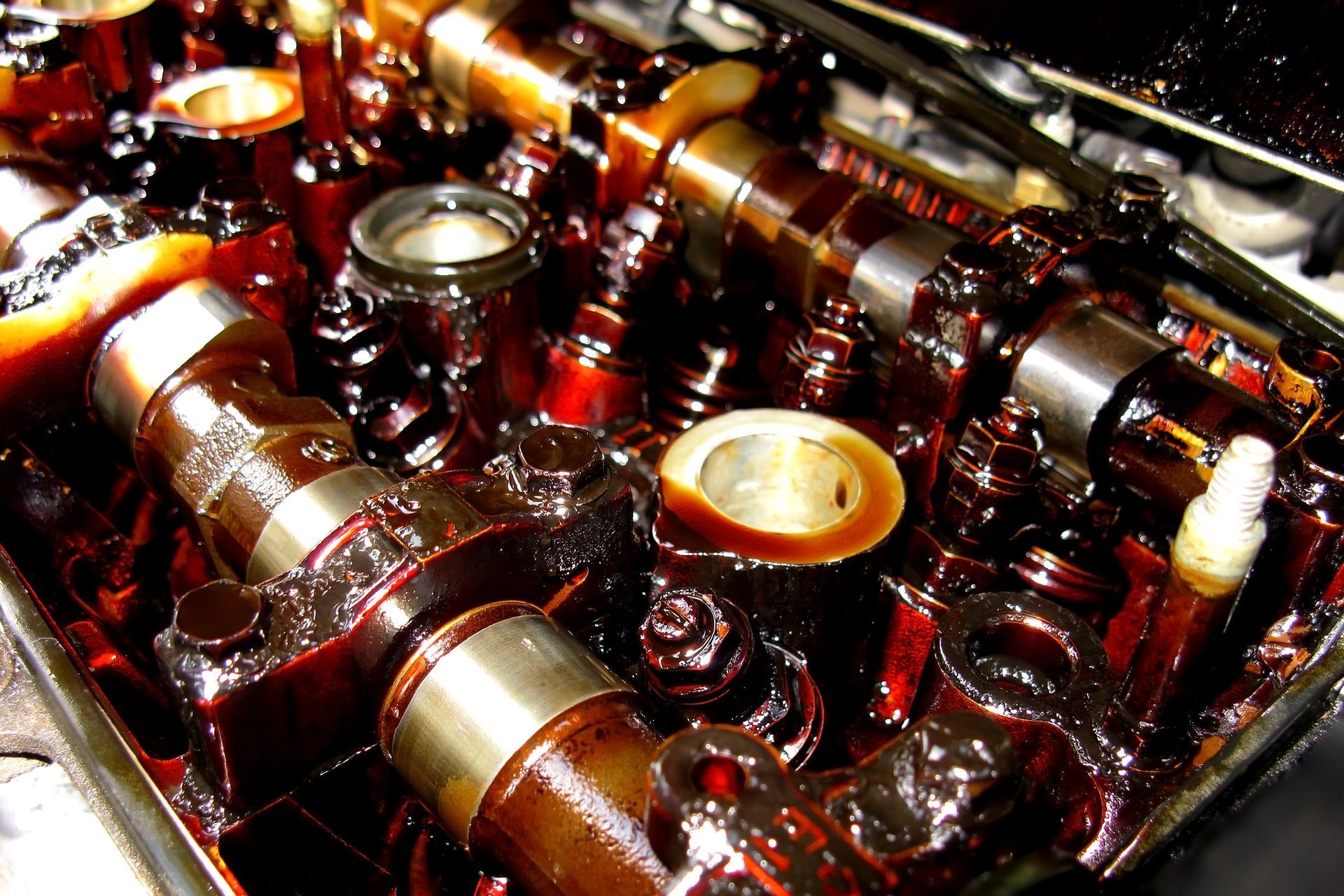What is National Car Care Month?
National Car Care Month is a month-long campaign held in April aimed at raising awareness of the importance of regular vehicle maintenance and promoting safe driving practices. During National Car Care Month, car owners are encouraged to take their vehicles to a trusted mechanic for a thorough inspection and servicing. This includes checking and replacing worn-out tires, brakes, and other essential components, as well as performing routine oil changes and fluid checks.
The campaign also emphasizes the importance of proper car care and maintenance in reducing emissions, improving fuel efficiency, and extending the vehicle's lifespan. Additionally, it provides valuable information and resources to help car owners stay safe on the road such as tips on defensive driving and safe driving habits.
This National Car Care Month, it's easier than ever to understand your vehicle's health at Paul Campanella's Auto & Tire Center. Each of our service centers provides digital courtesy inspections during your visit. We send them straight to your mobile or desktop device, along with photos of your vehicle to ensure complete transparency. These inspections come at no cost to you--they're our way of guaranteeing your safety on the road!
What comes with the Campanella's digital courtesy inspection?
1. Tire Check
Checking your tires on a regular basis is important for numerous reasons:
- Safety: Tires are one of the most critical safety features on your vehicle. Checking your tires regularly ensures that they are in good condition and can help prevent accidents caused by blowouts, flats, or worn-out tires.
- Improved fuel efficiency: Properly inflated tires can help improve your vehicle's fuel efficiency. Underinflated tires can cause your vehicle to work harder, which leads to decreased fuel efficiency and increased fuel consumption.
- Longer tire life: Regular tire checks can help identify issues early on, such as uneven wear or damage, which can lead to more extended tire life. When your tires are properly maintained, they can last longer, saving you money on replacement costs.
- Better handling: Tires that are properly inflated and have the correct tread depth provide better handling, especially in wet or slippery conditions. Good traction can help prevent skids and hydroplaning, which can cause accidents.
- Reduced noise and vibration: Worn-out tires cause excessive road noise and vibration, which can be both annoying and an indication of a larger problem. Regular tire checks can help prevent this issue and ensure a smoother and more comfortable ride.
In summary, checking your tires regularly is essential for your safety, fuel efficiency, tire life, handling, and overall driving experience. It's important to check your tire pressure, tread depth, and general condition regularly and have your tires rotated and balanced at the recommended intervals. If you notice any issues or abnormalities, such as uneven wear or damage, it's essential to have them checked by a qualified tire technician to prevent further damage or accidents.
Did you know? Paul Campanella's Auto & Tire Center provides free tire plugs, as well as free tire rotations with every oil change. Schedule yours here.
2. AC Check
Air conditioning is essential for providing a comfortable driving experience, especially during hot summer months. A properly functioning air conditioning system will keep you cool and prevent you from feeling overheated and uncomfortable while driving. There are several reasons you should get your air conditioning checked regularly:
- Safety: Driving in hot and humid conditions can be dangerous, as it can lead to drowsiness and reduced concentration. A functioning air conditioning system helps keep you alert and focused while driving, reducing the risk of accidents.
- Maintenance: Regularly checking your car's air conditioning system can help you identify any issues early on and prevent more significant problems from developing. This can save you time and money on repairs in the long run.
- Health: A properly functioning air conditioning system can also help to improve the air quality inside your vehicle. It filters out pollutants, dust, and allergens, which can be especially beneficial for those with respiratory problems.
- Resale value: A well-maintained air conditioning system can improve the resale value of your vehicle. Potential buyers will be more interested in a car with a functioning air conditioning system, which can lead to a higher resale price.
Looking to purchase a used vehicle? Bring in your prospective purchase for a courtesy pre-purchase inspection at Campanella's! Schedule your visit here.
3. Brake Check
Checking your brakes regularly is crucial for several reasons:
- Safety: Your vehicle's brakes are one of its most important safety features. Regular brake checks help ensure that they are in good condition and can effectively stop your vehicle when needed, preventing accidents caused by brake failure.
- Preventative maintenance : Regular brake checks can help identify issues early on, such as worn brake pads or brake rotors, preventing more significant problems from developing. This can save you time and money on repairs in the long run.
- Improved brake performance: Properly maintained brakes provide better stopping power and can improve your vehicle's overall handling and control, especially in emergency situations.
- Longer brake life: Regular brake checks can help extend the life of your brake components, such as brake pads and rotors. Replacing worn or damaged parts early on can prevent more significant damage and reduce the need for costly repairs.
- Fuel efficiency: Worn or damaged brakes can cause your vehicle's engine to work harder, reducing its fuel efficiency. Regular brake checks can help prevent this issue and ensure optimal fuel efficiency.
In summary, checking your brakes regularly is essential for your safety, vehicle performance, and overall driving experience. it's important to have your brakes checked by a qualified mechanic if you notice any issues, such as squeaking or grinding noises, reduced stopping power, or a spongy brake pedal. Don't ignore these signs as they could indicate more significant problems that require immediate attention.
4. Alignment Check
Our technicians will check your vehicle's alignment if there are concerns. Checking your vehicle's alignment is essential for several reasons:
- Safety: A properly aligned vehicle is safer to drive because it handles better, particularly in emergency situations. If your vehicle's alignment is off, it can cause your tires to wear unevenly and affect your ability to steer and brake.
- Improved fuel efficiency: Misaligned wheels can cause your vehicle's engine to work harder, leading to decreased fuel efficiency and increased fuel consumption.
- Longer tire life: Proper alignment can help extend the life of your tires. Misaligned wheels cause uneven tread wear, which can lead to premature replacemnt.
- Better handling and performance: Correct alignment ensures that your vehicle handles and performs as it should. If your vehicle pulls to one side or feels unstable, it could be a sign that the alignment is off.
- Cost savings: Regular alignment checks can save you money in the long run by preventing premature tire wear and reducing the likelihood of more expensive repairs caused by misaligned wheels.
In summary, checking your vehicle's alignment regularly is essential for your safety, fuel efficiency, tire life, handling, and overall driving experience. It's important to have your alignment checked if you notice any signs of misalignment, such as pulling to one side, uneven tire wear, or a vibrating steering wheel. A qualified mechanic can perform an alignment check and adjust the alignment if necessary to ensure that your vehicle is safe and performs as it should.
5. Code Scan
A car code scan, also known as OBD-II scanning, retrieves diagnostic trouble codes (DTCs) from a vehicle's onboard computer. The onboard computer, also known as the engine control module (ECM) or powertrain control module (PCM), monitors various sensors and components in the vehicle and reports any issues that arise. When a problem is detected, the ECM/PCM stores a corresponding DTC in its memory, which can be retrived using an OBD-II scanner.
The OBD-II scanner communicates with the ECM/PCM through the OBD-II port, which is usually located under the dashboard on the driver's side of the vehicle. The scanner retrieves the stored DTCs and displays them on its screen. The codes provide information about what is wrong with the vehicle and may indicate which components need to be repaired or replaced. There are hundreds of possible DTCs, and they can vary depending on the make and model of the vehicle. Some codes are generic and apply to all vehicles, while others are specific to certain manufacturers or models. Common DTCs include issues with the oxygen sensor, catalytic converter, ignition coil, or mass air flow sensor.
Once the DTCs have been retrieved, the OBD-II scanner can be used to diagnose and troubleshoot the issue. The scanner may provide additional information, such as freeze frame data (a snapshot of the vehicle's conditions when the DTC was set), live data (real-time readings from the vehicle's sensors), and readiness monitors (tests that the ECM/PCM performs to ensure the vehicle is running properly).
Overall, a car code scan is a useful tool for diagnosing and repairing issues with a vehicle. It provides valuable information about the vehicle's condition and helps to pinpoint the source of any problems.
For your convenience, we have five full-service auto repair centers in the Delaware Valley:

